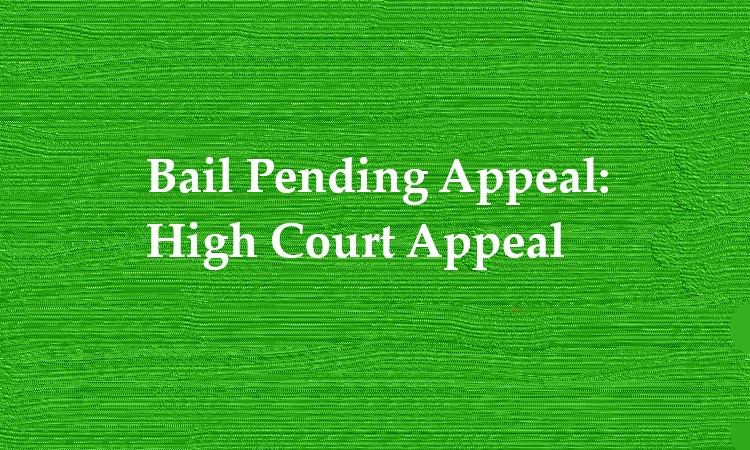
Contents
- 1 Bail Appeal Procedure in Indian Law? how to get it from to High Court
- 2 Unlike in pretrial bail proceedings, no presumption of innocence exists after a conviction. As a result, when there’s a question as to whether bail is appropriate, most states place the burden on the convict to show that he has a good chance of being successful in the appeal and he would not flee to another country or go underground or failed to appear for court hearings in the past or cause any injury to anyone or ties to the community such as family . If the High Court is satisfied that the accused is entitled to bail, it may grant bail on such terms and conditions as it deem fit.
- 3 Courts can consider the merits of the appeal. If it appears the appeal is frivolous or simply intended to delay the proceedings, the court is less likely to allow bail.
- 4 Section 389 CrPC: Suspension of sentence pending the appeal
- 5 Case Law:
Bail Appeal Procedure in Indian Law? how to get it from to High Court
Bail appeal procedure to High Court is governed by Section 389 of the Criminal Procedure Code (CrPC). This section deals with situations where a convicted person can get bail from the Appellate Court after filing a criminal appeal. It also deals with a situation where the trial court itself can grant bail to a convicted accused enabling him to prefer an appeal.
Unlike in pretrial bail proceedings, no presumption of innocence exists after a conviction. As a result, when there’s a question as to whether bail is appropriate, most states place the burden on the convict to show that he has a good chance of being successful in the appeal and he would not flee to another country or go underground or failed to appear for court hearings in the past or cause any injury to anyone or ties to the community such as family . If the High Court is satisfied that the accused is entitled to bail, it may grant bail on such terms and conditions as it deem fit.
Courts can consider the merits of the appeal. If it appears the appeal is frivolous or simply intended to delay the proceedings, the court is less likely to allow bail.
Section 389 CrPC: Suspension of sentence pending the appeal
(3) Where the convicted person satisfies the Court by which he is convicted that he intends to present an appeal, the Court shall,-
Case Law:
Shri. Dobi M. Marak vs . State Of Meghalaya & Anr. on 22 May, 2023: Section 376(1) and Section 506(1) IPC, this appeal was filed with a prayer to set aside and quash … seen that the appellant was released on bail on 10.06.2015, but was re-arrested on 18.08.2016 on the strength
Jyotiben Ramlal Purohit And Etc. vs State Of Gujarat And Anr. on 14 December, 1995: Pending the appeal, the convict preferred an application for temporary bail. Learned Single … bail, order that the convicted person be released on bail, unless there are special reasons for refusing bail
Tahir Khan @ Shakeel vs State Of Rajasthan on 3 August, 2005: after conviction, should be released on bail pending the hearing of their appeals should they make an application for this … grant of bail, as mentioned above. The criteria and time frame for grant of bail in pending appeals for long.
State Of A.P.Thr.I.G.National … vs Md.Hussain @ Saleem on 13 September, 2013: order of the special court granting or refusing bail. Appeals under 21(4) are not required to be heard … orders are not appealable, an appeal is provided against the order granting or refusing the bail.
Bail Appeal Procedure, Bail Appeal Procedure, Bail Appeal Procedure, Bail Appeal Procedure
